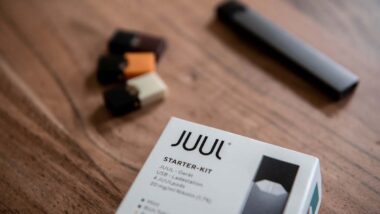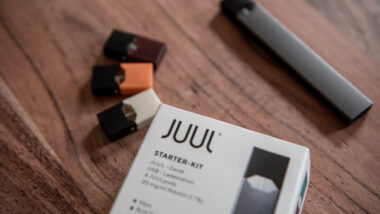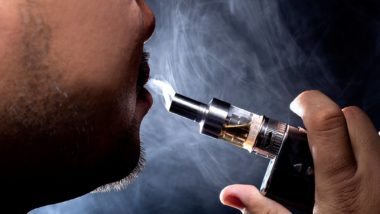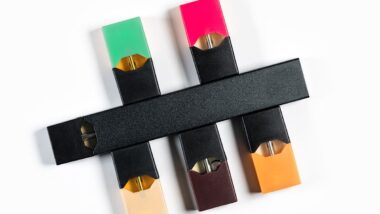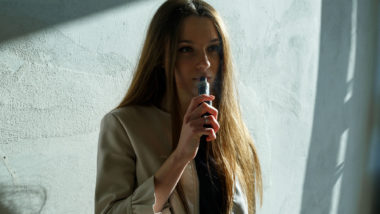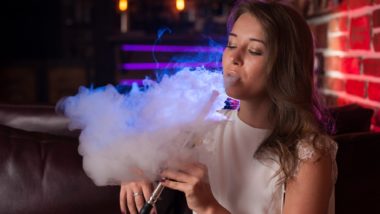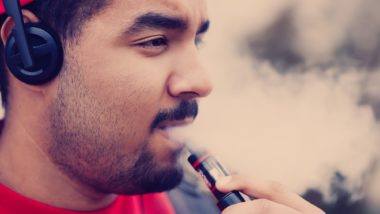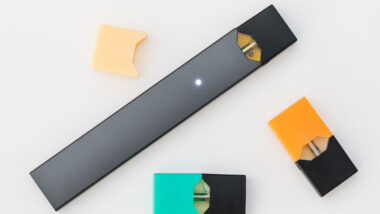 Concerned over vaping and health consequences, the San Francisco Board of Supervisors has voted to ban the sale of e-cigarettes. The ban does not target JUUL products specifically, but it does prohibit the sale of nicotine pods and other devices that lack FDA approval.
Concerned over vaping and health consequences, the San Francisco Board of Supervisors has voted to ban the sale of e-cigarettes. The ban does not target JUUL products specifically, but it does prohibit the sale of nicotine pods and other devices that lack FDA approval.
The vote was unanimous. In a statement to the media, Mayor London Breed pointed out that much is unknown about vaping and health, and criticized e-cigarette companies for targeting youth in their advertising.
“We need to take action to protect the health of San Francisco’s youth and prevent the next generation of San Franciscans from becoming addicted to these products,” he said.
Vaping and Health: What We Do Know
Vaping, the use of electronic cigarettes, is a relatively new phenomenon. Although the concept dates from the late 1920s and the first e-cigarette was patented nearly 60 years ago, the practice of vaping did not really take hold with the general public until around 2007.
E-cigarettes do not contain tar, but according to recent scientific research, that may be the best that can be said about them. The American Lung Association reports that the liquids used in e-cigs, known as “vape juice,” contain a “chemical cocktail” that includes formaldehyde (used in embalming fluid), acrolein (an herbicide ingredient) and acetaldehyde (an industrial chemical), all of which can cause severe, irreversible lung damage when inhaled.
Even relatively innocuous ingredients such as propylene glycol and vegetable glycerin, both commonly used in food products, can undergo significant chemical changes when heated.
There are also risks from “secondhand” vape fumes. In 2016, the U.S. Surgeon General’s office reported that secondhand vape contains “ultrafine particles; flavorings such as diacetyl, a chemical linked to serious lung disease; volatile organic compounds such as benzene, which is found in car exhaust; and heavy metals, such as nickel, tin, and lead.”
There is also the nicotine content, which vape delivers in greater amounts than combustible cigarettes. Among the consequences of vaping and health on some individuals has been seizures, brought on by nicotine toxicity.
The Industry Responds to San Francisco’s Ban
JUUL, a San Francisco-based company, has expressed its support for keeping “tobacco and favor [sic] products out of the hands of anyone under 21,” but says a wholesale ban “will not effectively address underage use,” according to CNBC. Instead, they say the ban will cause people who have “successfully switched to vapor products” to return to cigarette smoking and “deny the opportunity to switch for current adult smokers.” JUUL has already gained enough signatures to put the ban to a vote this November.
It is worth noting that sale of JUUL products generated $1.3 billion for the company in 2018, and is projecting sales of $3.4 billion for 2019.
Join a Free JUUL E-Cigarette Class Action Lawsuit Investigation
If you or your child suffered seizures after vaping with a JUUL e-cigarette, you may benefit from participating in a free JUUL class action lawsuit investigation.
This article is not legal advice. It is presented
for informational purposes only.
ATTORNEY ADVERTISING
Top Class Actions is a Proud Member of the American Bar Association
LEGAL INFORMATION IS NOT LEGAL ADVICE
Top Class Actions Legal Statement
©2008 – 2025 Top Class Actions® LLC
Various Trademarks held by their respective owners
This website is not intended for viewing or usage by European Union citizens.
Get Help – It’s Free
Join a Free JUUL E-Cigarette Class Action Lawsuit Investigation
If you qualify, an attorney will contact you to discuss the details of your potential case at no charge to you.
PLEASE NOTE: If you want to participate in this investigation, it is imperative that you reply to the law firm if they call or email you. Failing to do so may result in you not getting signed up as a client or getting you dropped as a client.
E-mail any problems with this form to:
[email protected].


